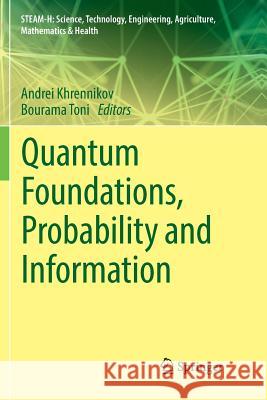Quantum Foundations, Probability and Information » książka
topmenu
Quantum Foundations, Probability and Information
ISBN-13: 9783030091163 / Angielski / Miękka / 2018 / 295 str.
Kategorie:
Kategorie BISAC:
Wydawca:
Springer
Seria wydawnicza:
Język:
Angielski
ISBN-13:
9783030091163
Rok wydania:
2018
Wydanie:
Softcover Repri
Numer serii:
000811494
Ilość stron:
295
Waga:
0.44 kg
Wymiary:
23.39 x 15.6 x 1.65
Oprawa:
Miękka
Wolumenów:
01
Dodatkowe informacje:
Wydanie ilustrowane











